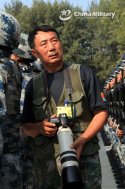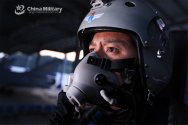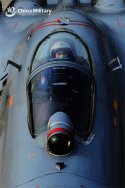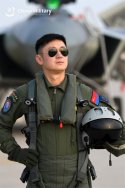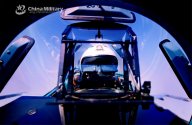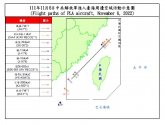You are using an out of date browser. It may not display this or other websites correctly.
You should upgrade or use an alternative browser.
You should upgrade or use an alternative browser.
PLA Air Force news, pics and videos
- Thread starter Jeff Head
- Start date
PLA Air Force to participate in Africa Airforce Forum: Defense Spokesperson
SourceEditorChen Zhuo Time2022-10-27 16:54:11
BEIJING, Oct. 27 -- The first Africa Airforce Forum will be held in Dakar, capital of Senegal, from October 26 to 27, and a Chinese Air Force delegation will participate in it, according to Senior Colonel Tan Kefei, a spokesperson for China's Ministry of National Defense (MND), at a regular press conference in Beijing on Thursday.
“The forum aims to strengthen the air forces’ cooperation between Africa and other countries around the world to better cope with regional security challenges,” stated Spokesperson Tan.
The spokesperson introduced that in recent years, the Chinese PLA Air Force (PLAAF) has demonstrated its goodwill of opening-up, cooperation, and exchanges through a series of bilateral and multilateral platforms, including world air force leaders’ conference , air shows, and joint exercises and training. The Chinese PLAAF has carried out practical cooperation with foreign air forces worldwide, including those of African countries.
According to the spokesperson, the Chinese PLAAF has also played a positive role in international humanitarian disaster relief and reduction, regional security cooperation, etc. Since the outbreak of COVID-19 pandemic, amounts of urgently-needed medical supplies, medicines, and apparatus have been delivered by the Chinese PLAAF aircraft to many countries in Asia and Africa.
“The Chinese PLAAF has been making contributions to building the community with a shared future for mankind and preserving world peace by taking these various pragmatic measures,” said the spokesperson.
Missed an article from last week:
By Bao Rui, Zhao Weidong, Ye Haisong, and Wang Xin
As the cutting edge of science and technology is constantly changing, being sensitive to the changes has been the innovation source power of Wang Heng, a lab director of the PLA Air Force Research Institute.
At an airport in western Guangdong, several fighter jets soared into the sky when Wang Heng stared at the figures on the timer. This was a test to verify a certain aircraft technology developed by a research team headed by Wang Heng.
Wang chose to join the PLA Air Force Research Institute upon receiving the doctorate degree from Tsinghua University.
Quick reaction is key to winning on the future battlefield. How to make the air force combat units react faster? "In order to save time, Formula One (racing car) gets refueled and tires changed without stalling during the race. It occurred to me that whether this could be applied to a fighter jet so that the jet could also get refueled and armed with missiles without the engine shutdown," Wang recalled.
In 2014, Wang put forward the necessity and feasibility of developing the technology by virtue of his solid theoretical foundation and data analyses in quantity. Wang’s assumption, viewed as an adventure by many people, was finally listed as a research project. Wang and his team ultimately succeeded in the verification of the technology with test flight after years of relentless efforts. The application of the research achievement has greatly shortened the time for aircraft to take off again after landing, serving to be of strong support for improving the strike frequency and efficiency of warplanes.
"If we can outrun the opponent by one minute from take-off, transition to second take-off, we will definitely take the preemptive opportunity and change the battle situation," Wang said.
The closer the scientific research work is to the front line of combat readiness, the more demands will emerge, and the more achievements will be made. In Wang's eyes, these achievements are attributed to the cooperation between the scientific research institutions and frontline combat units, and the strong atmosphere of war-preparedness among the whole military.
"All military accomplishments around the world take quick reaction at its core. Our scientific research work should focus on the practical needs of the troops, so as to improve the quick reaction ability of the air force aviation troops through cutting-edge technologies," said Wang.
By Bao Rui, Zhao Weidong, Ye Haisong, and Wang Xin
As the cutting edge of science and technology is constantly changing, being sensitive to the changes has been the innovation source power of Wang Heng, a lab director of the PLA Air Force Research Institute.
At an airport in western Guangdong, several fighter jets soared into the sky when Wang Heng stared at the figures on the timer. This was a test to verify a certain aircraft technology developed by a research team headed by Wang Heng.
Wang chose to join the PLA Air Force Research Institute upon receiving the doctorate degree from Tsinghua University.
Quick reaction is key to winning on the future battlefield. How to make the air force combat units react faster? "In order to save time, Formula One (racing car) gets refueled and tires changed without stalling during the race. It occurred to me that whether this could be applied to a fighter jet so that the jet could also get refueled and armed with missiles without the engine shutdown," Wang recalled.
In 2014, Wang put forward the necessity and feasibility of developing the technology by virtue of his solid theoretical foundation and data analyses in quantity. Wang’s assumption, viewed as an adventure by many people, was finally listed as a research project. Wang and his team ultimately succeeded in the verification of the technology with test flight after years of relentless efforts. The application of the research achievement has greatly shortened the time for aircraft to take off again after landing, serving to be of strong support for improving the strike frequency and efficiency of warplanes.
"If we can outrun the opponent by one minute from take-off, transition to second take-off, we will definitely take the preemptive opportunity and change the battle situation," Wang said.
The closer the scientific research work is to the front line of combat readiness, the more demands will emerge, and the more achievements will be made. In Wang's eyes, these achievements are attributed to the cooperation between the scientific research institutions and frontline combat units, and the strong atmosphere of war-preparedness among the whole military.
"All military accomplishments around the world take quick reaction at its core. Our scientific research work should focus on the practical needs of the troops, so as to improve the quick reaction ability of the air force aviation troops through cutting-edge technologies," said Wang.
lcloo
Major
They should study and take some lessons from Grand Prix F1 racing cars pit stop crew. Those guys always amazed me with their speed.
During 7 days war, the Israelis did well with their fast turn-over to requip their Mirage 3, and managed multiple sorties that surprised the Arab airforces.
During 7 days war, the Israelis did well with their fast turn-over to requip their Mirage 3, and managed multiple sorties that surprised the Arab airforces.
by78
General
Allegedly an image of the new self-propelled mortar for PLAAF Airborne troops.

I think this might be it.


It's much brighter and welcoming compared to the depiction in Dr Strangelove et al.The joint command center of the Central Military Commission. Note that this isn't a joint command center for one of the regional theater commands, but the joint command center for all of China.

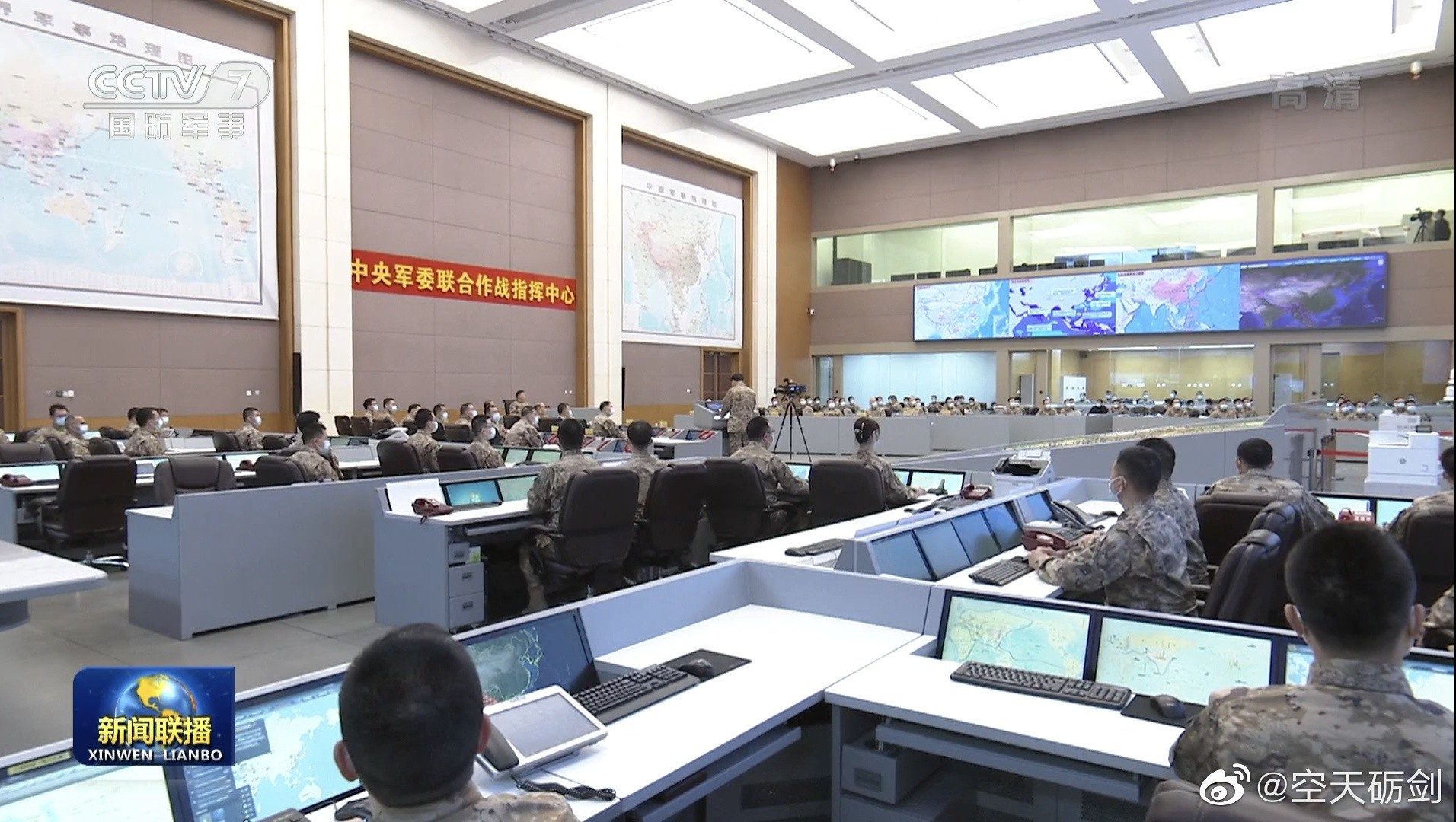
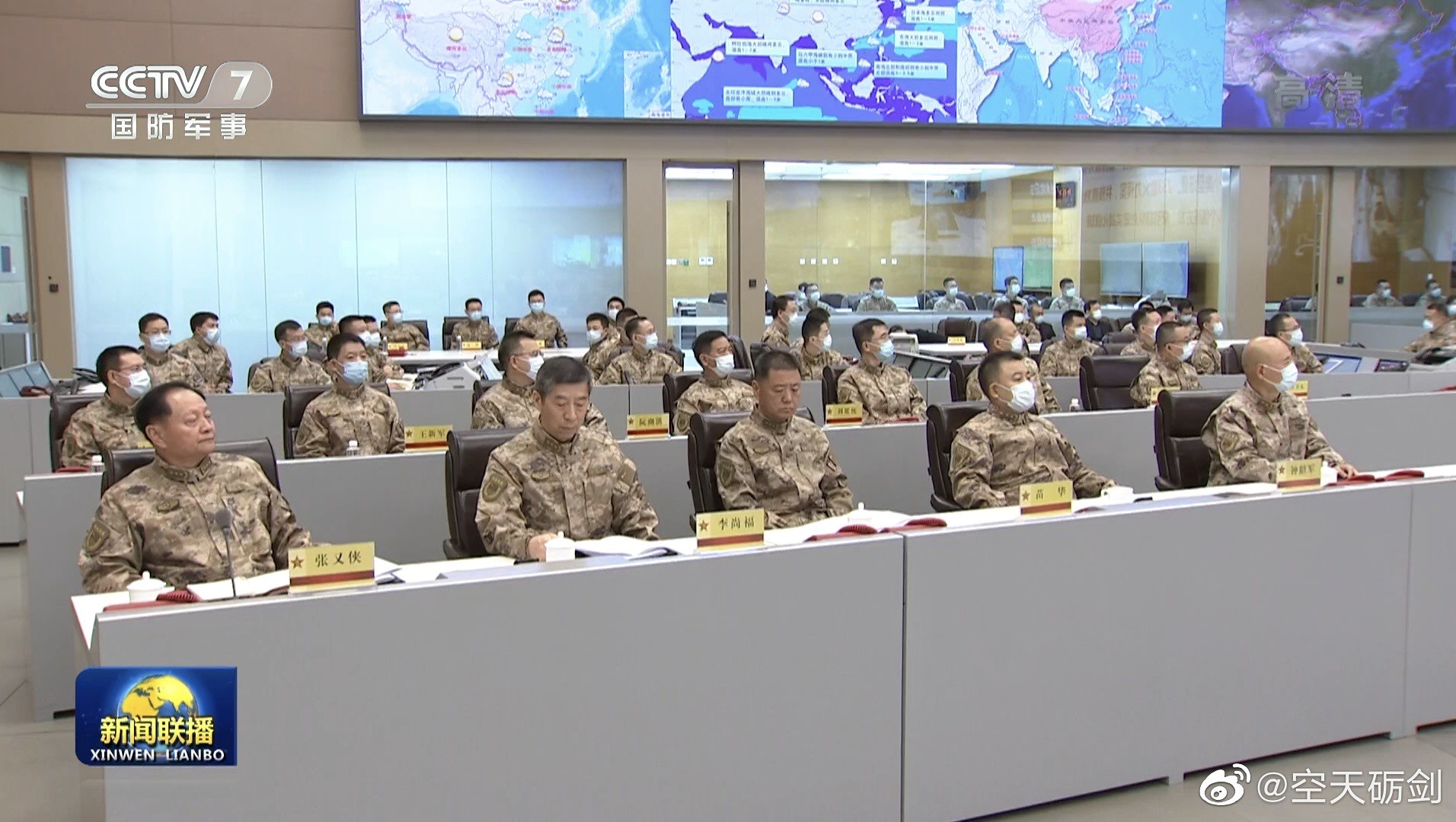


by78
General
Flight rating badges. The cloth badge is worn with flight suits, and the metal one with regular and dress uniforms. There are four levels (from high to low): Special, Level One, Level Two, and Level Three. Flight specialty symbol is located right below the Bayi red star, below that is the symbol for flight rating level.







